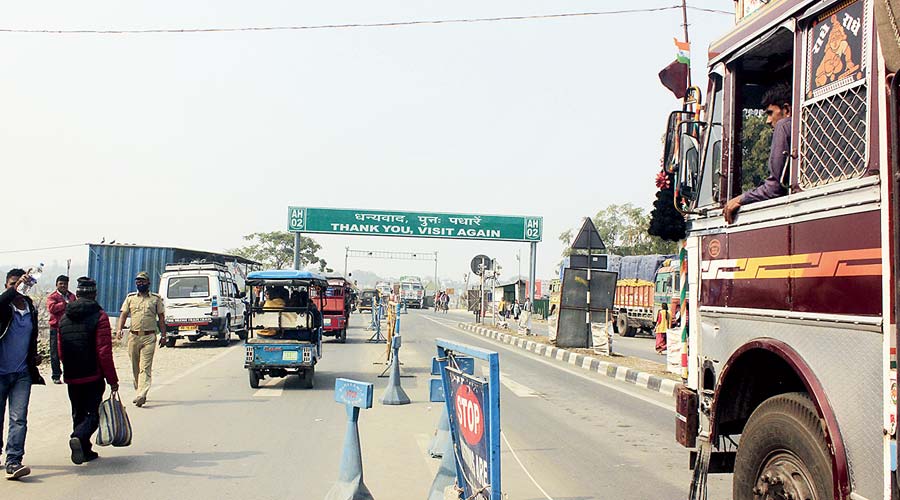If Kathmandu sneezes, Siliguri catches a cold.
A recent decision by the Nepal government to halt the import of non-essential commodities in a bid to thwart the decline of foreign exchange reserves in the neighbouring country has slammed the brakes on the export of a range of products from Siliguri and different parts of north Bengal, casting a shadow on bilateral trade between the two countries.
“The order came into effect around a fortnight ago and it has had a huge impact on Siliguri as a majority of exports to Nepal is through north Bengal,” said Hardeep Chawla, an exporter in Siliguri.
In the recent order, the Nepalese authorities have banned import of a range of products such as bicycles, two-wheelers, machinery and spare parts, electric appliances, readymade garments, toys, sports goods, footwear, personal care products, optical, medical and surgical equipment, gold and silver.
The list also includes perishable items such as fish, meat, vegetables, dairy products, natural honey and eggs, and bananas.
Amid murmurs that the Himalayan country's economy is in shambles, its finance minister Janardhan Sharma recently said there was no need to panic and the country’s economy would not nosedive like that of Sri Lanka.
The assurance from the Nepali authorities that the ban is temporary and that it has been imposed to manage the country’s Forex reserves has done little to allay fears.
“We don't know how long this ban will last,” said Chawla.
From Siliguri and north Bengal, goods used to be exported to Nepal through Panitanki, around 40km from here, which connects Kakarvitta of Nepal on the other side through the Mechi river bridge along Asian Highway-II.
Through Panitanki, items like coal, petroleum products, raw jute, bicycle and spare parts, cement, clinker and vegetables are exported to Nepal.
“It is obvious that the exporters of India who send goods to Nepal are bearing losses as out of Nepal’s total import, 65 per cent is from India,” said Brij Kishor Prasad, secretary of the North Bengal Exporters’ Association.
According to the data available with the Director General of Foreign Trade, the total export from India to Nepal in the 2020-21 fiscal was worth USD 6,765.93 million. Nepal’s exports to India was only USD 670.33 million.
An exporter, giving an example of the impact, said that even a couple of months back, 25 to 30 tonnes of fruits and 40 to 50 tonnes of vegetables were supplied to Nepal from the Siliguri regulated market every day. This apart, goods worth Rs 20 to 25 lakh, mostly spices, would head to Nepal from the wholesale market of food grains, oil and spices at Nayabazar of Siliguri.
But now, the trading community is worried about the future.
“Along with traders, transporters who sent trucks to Nepal are also facing losses,” said Surajit Paul, secretary of the Federation of Chambers of Commerce and Industries of Eastern India — an apex body of trade associations in north Bengal.
An economist based in north Bengal said remittances from Nepalis living abroad were one of the major sources of foreign exchange for the neighbouring country and Covid created problems for the expatriate community.
“Due to the pandemic, many of them have returned home and such deposits have declined. This has led to the impact on the foreign reserves. In fact, representatives of the Nepal government have passed messages to those who are still abroad to make deposits in the country’s banks to improve the reserves... It will take some time for the situation to improve," said the economist.











